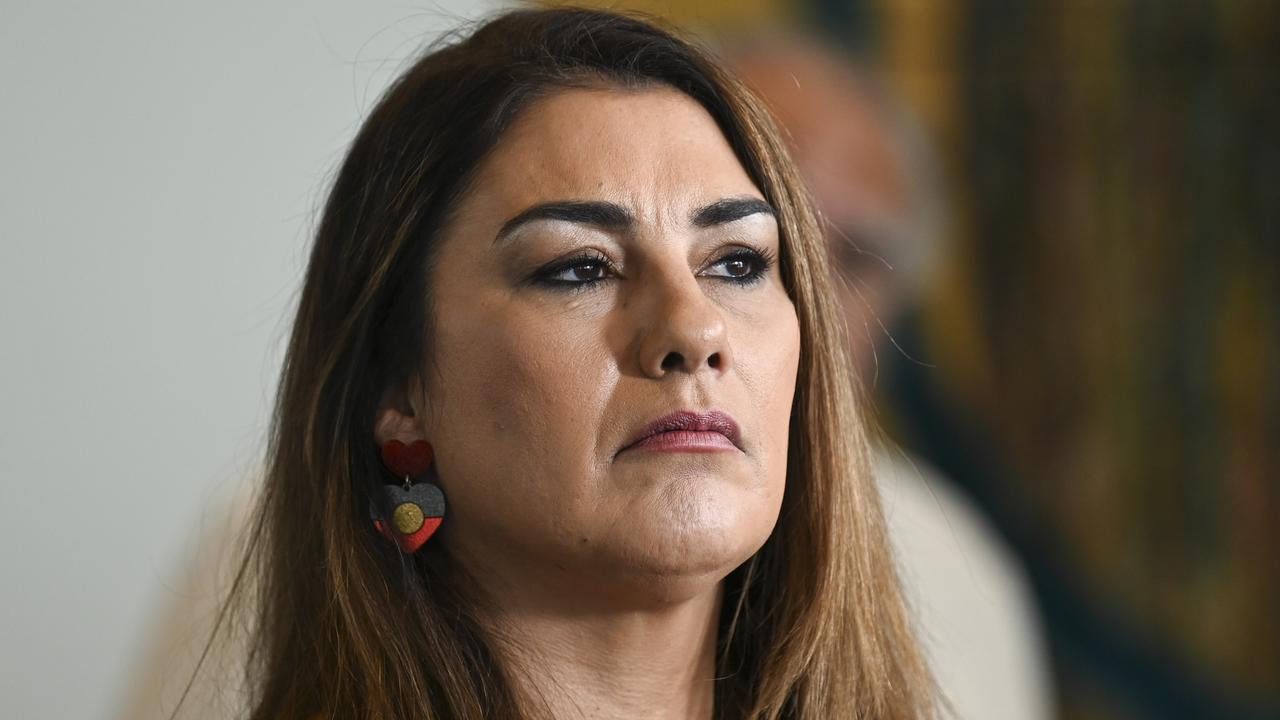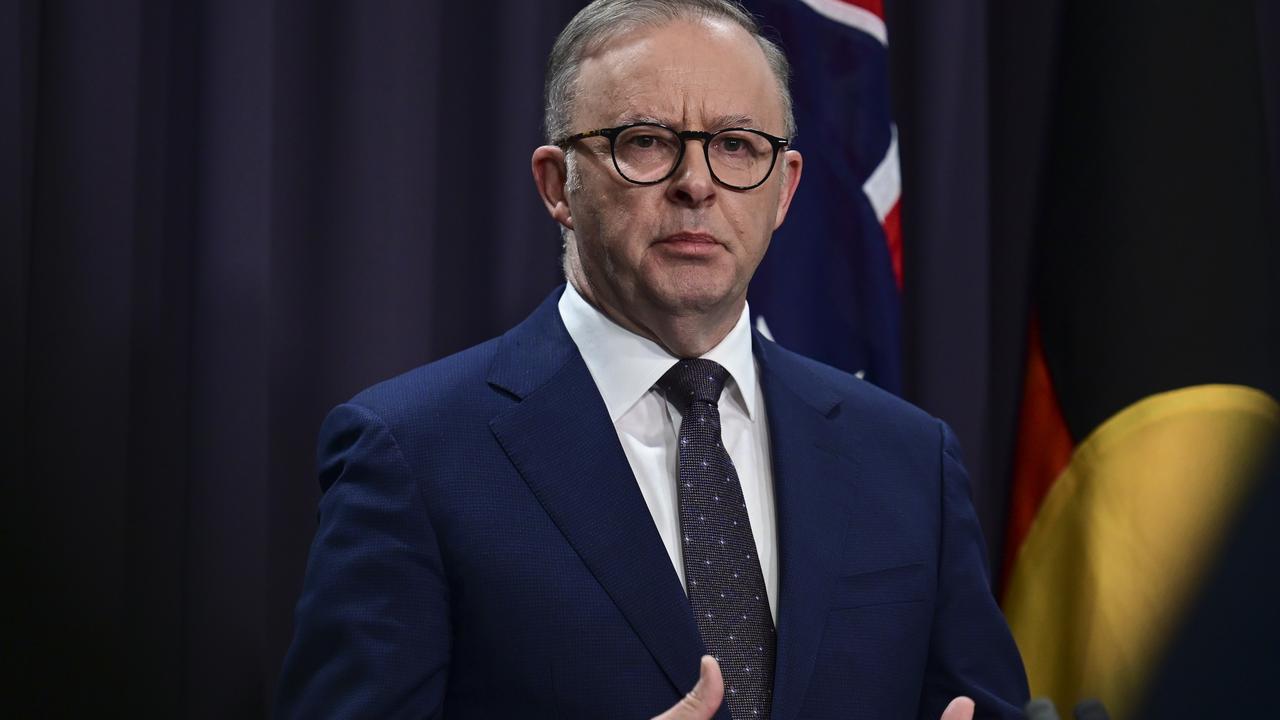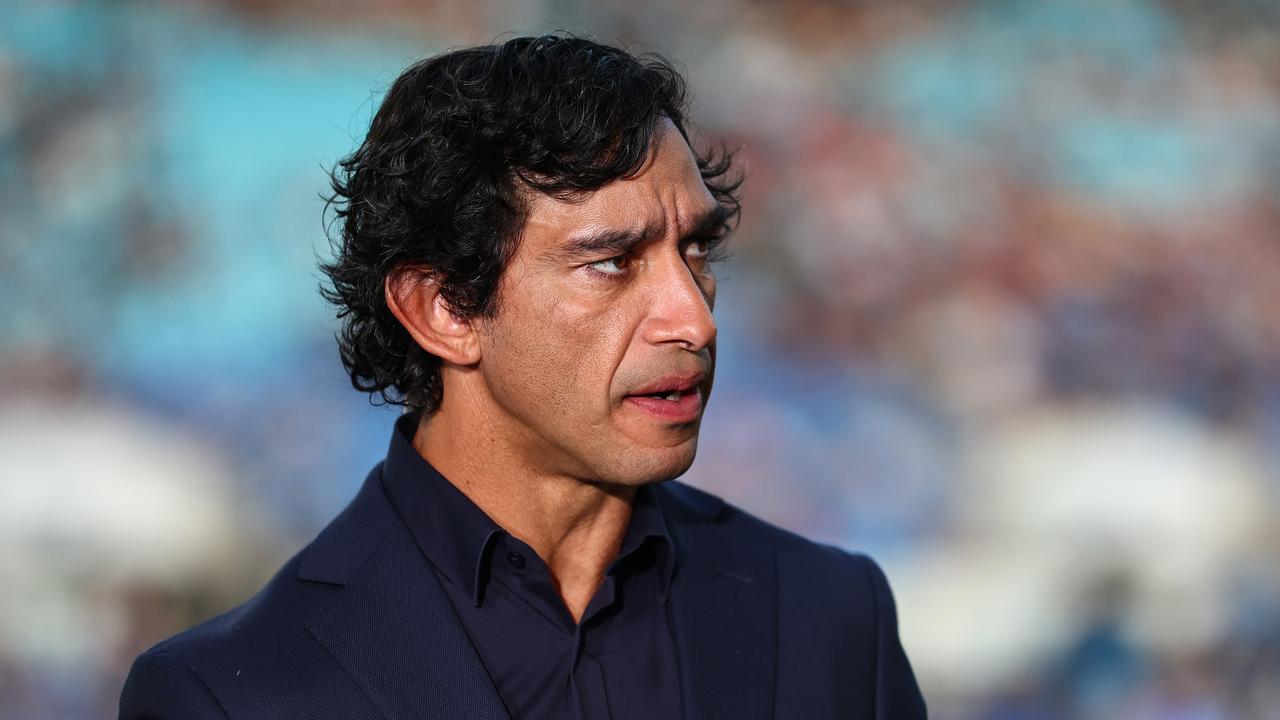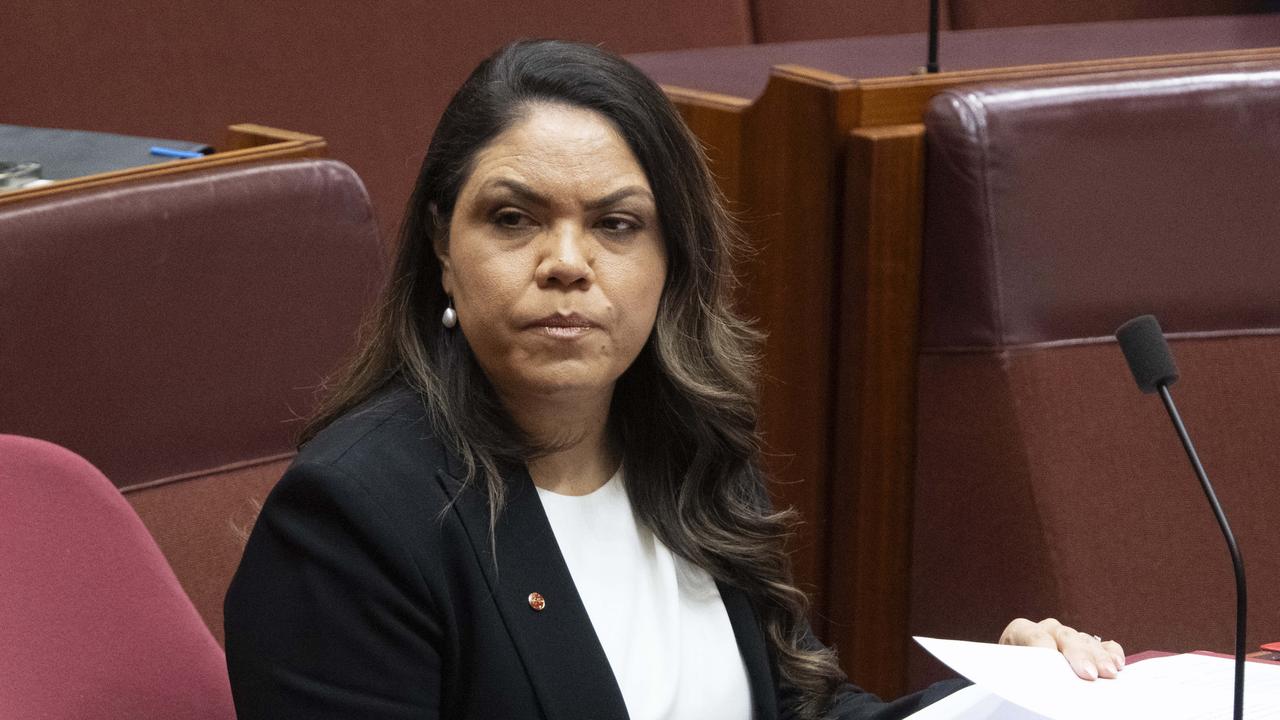Lidia Thorpe blasts Yes, No cases as Voice pamphlets go online
The leader of the Blak Sovereign Movement says she will publish their own statement against the Voice later this week.
Independent senator Lidia Thorpe has delivered a scathing assessment of both the Yes and No campaigns after the official cases were published online on Tuesday.
Ahead of the Voice to parliament referendum later this year, politicians on both sides of the debate each pulled together a 2000-word essay – with no requirement to be truthful – that will be distributed to households across the country via pamphlets closer to the vote.
Senator Thorpe, who describes herself as a “progressive No” voter, said she had been excluded from contributing to the official No case but would publish her own written statement later this week.
In the meantime, she gave a blistering attack of both cases, first criticising the Yes case for “how little substance there is in what they are proposing”.

“It is utterly shameful that they could write 2000 words about ‘fixing the Aboriginal problem’ and not once mention deaths in custody, child removals or destruction of country. The war on our people continues and this whole Voice business is nothing but a smoke screen to cover up the continued process of the violent colonisation of this country,” Senator Thorpe said.
She said the Yes campaign’s blanket statement that their proposal “came from Aboriginal and Torres Strait Islander people” was shameful and denied diversity of views.
She went on to say that the only thing of “even less substance” than the official Yes case was the No case.
“The No campaign have clearly taken advantage of the pamphlet not being fact-checked and done more to embolden racists than they have to argue against the Voice,” she said.
She said the Blak Sovereign Movement’s written statement would provide voters with “truth that cuts through the emotive language of the Yes campaign and the fearmongering of the conservative No campaign”.

Also critical of the No campaign were Megan Davis and Pat Anderson from the Uluru Dialogue who described the No pamphlet as “cooked”.
“The No pamphlet has used taxpayers’ money to distribute misleading information aimed at holding our people back, all Australians in fact,” the pair said.
“This referendum is the opportunity for national unity, the only people seeking to divide us is the No campaign with their cynical, misleading and divisive campaign.”
While the official Yes pamphlet boasts quotes from sporting legends Johnathan Thurston, Eddie Betts and Evonne Goolagong Cawley, the No pamphlet makes clear its argument is that the Voice is “risky, unknown and permanent” and will fuel calls to change the country’s flag and abolish Australia Day.
The No pamphlet also quotes concerns constitutional conservative Greg Craven raised months ago despite his repeated insistence that he is backing the Voice to parliament.

The Yes case, authorised by the government after working with pro-voice MPs and senators from across the parliament, sets out eight key reasons to vote Yes.
It states that the idea for the Voice originated from Indigenous Australians, not politicians, and that the Voice will save the country money by ensuring funding is spent more effectively.
“Vote yes for a better future for Aboriginal and Torres Strait Islander people and all Australians. Vote yes for unity, hope and to make a positive difference,” the Yes case states.
NRL champion and Gunggari man Thurston, who featured in the official document, said: “Our young people deserve the chance to be the best.
“I work closely with school kids in the Yarrabah community in Queensland. I‘ve seen the obstacles they face. Nobody understands that better than their local community. Giving them a say will mean more of our kids reach their potential. That’s what the Voice is about.”
Cawley, a former tennis world No.1 and Wiradjuri woman, said: “Let’s grab this moment with both hands.
“Voting Yes is a chance for all Australians to celebrate the contribution Aboriginal and Torres Strait Islander peoples have made to our country and to help the next generation chase their dreams.”

The No side, led by the opposition’s spokeswoman for Indigenous Australians Jacinta Nampijinpa Price, tells Australians the Voice “won’t help Indigenous Australians” because “more bureaucracy is not the answer”.
The case claims the Voice is “legally risky” and will divide Australians. A number of times it tells people: “If you don’t know, vote No.”
The No case also seeks to extrapolate on fears the Voice would be a “gateway for activism”, citing old comments from Voice advocate Thomas Mayo that reference potential reparations and compensations. Mr Mayo has since distanced himself from those comments.
“Already, many activists are campaigning to abolish Australia Day, change our flag and other institutions and symbols important to Australians. If there is a constitutionally enshrined Voice, these calls would grow louder,” the No case says.
The No case argues against the Yes case’s claim the Voice will save Australia money, instead arguing that more bureaucracy will mean more cost.
Yes case: 8 reasons to vote yes
- This idea came directly from Aboriginal and Torres Strait Islander people
- Constitutional recognition for concrete results
- Ensure people have a better life
- Bring our country together
- Save money
- The time is now
- Practical advice that works
- Making government work better
No case: 8 reasons to vote no
- The Voice is legally risky
- There are no details
- It divides us
- It won’t help Indigenous Australians
- No issue is beyond its scope
- It risks delays and dysfunction
- It opens the door for activists
- It will be costly and bureaucratic



